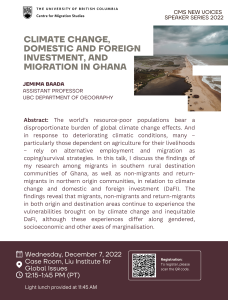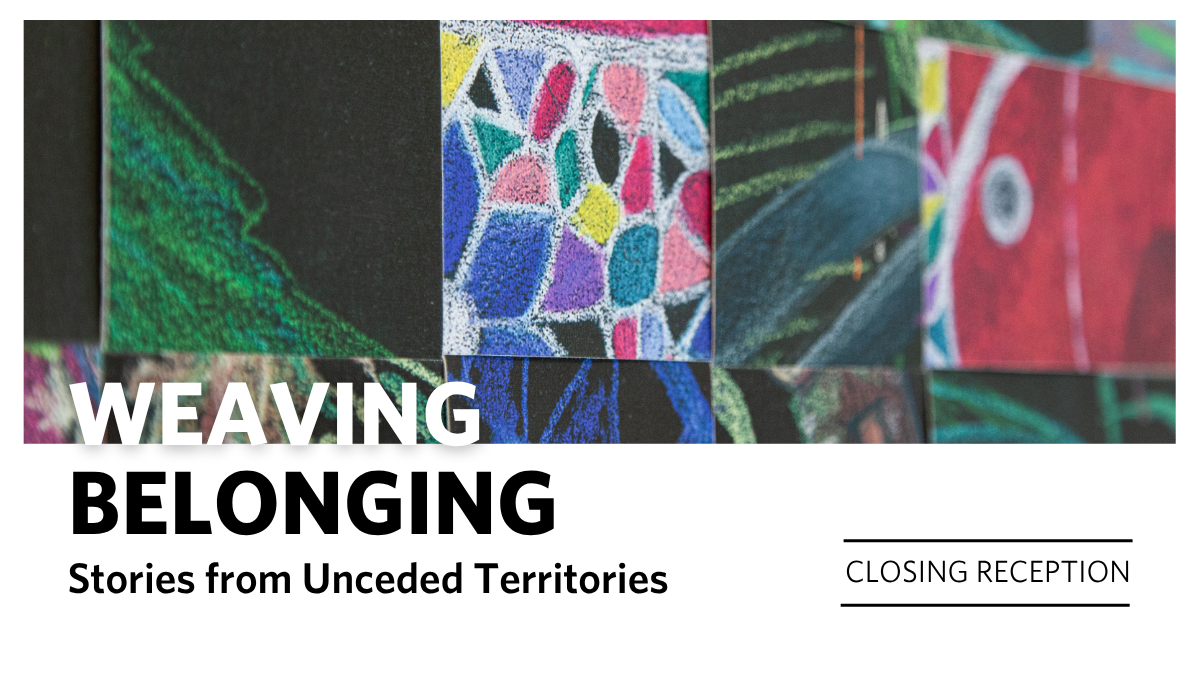Climate Change, Domestic and Foreign Investment, and Migration in Ghana
Assistant Professor, UBC Department of Geography


Free & open to the public. To register, fill out the RSVP form below.
Abstract: The world’s resource-poor populations bear a disproportionate burden of global climate change effects. And according to the World Bank, as of 2018, four out of five people living below the international poverty line reside in rural areas. In response to deteriorating climatic conditions, many populations – particularly those dependent on agriculture for their livelihoods – rely on alternative employment and migration as coping/survival strategies. In northern Ghana, climate change effects (particularly reduced/erratic rains and deteriorating edaphic conditions) peaked around the late 1970s. Coupled with (neo)colonial legacies of underdevelopment and a resulting vicious cycle of poverty, many residents of northern regions have relied on rural-rural migration to southern Ghana for sustenance. In this talk, I discuss the findings of my research among migrants in southern rural destination communities of Ghana, as well as non-migrants and return-migrants in northern origin communities, in relation to climate change and domestic and foreign investment (DaFI). The findings reveal that in the origin areas, non-migrants and return-migrants report poor environmental/farming conditions, exclusion from DaFI opportunities, and decreasing social capital/support due to growing migrations. Women, older adults, and people with disabilities tend to be excluded from migrations. In destination areas, migrants’ post-migration experiences often do not meet their pre-migration hopes of livelihood improvement, due largely to social exclusion in destination communities and the persistence of poverty. Migrants, non-migrants and return-migrants in both origin and destination areas continue to experience the vulnerabilities brought on by climate change and inequitable DaFI, although these experiences differ along gendered, socioeconomic and other axes of marginalisation.
Moderator: Suzanne Huot (Assistant Professor, Occupational Science & Occupational Therapy)
Click here for other events in our New Voices Speaker Series!
Registrations are now closed, please send us an email if you wish to participate.
admin.migration@ubc.ca
